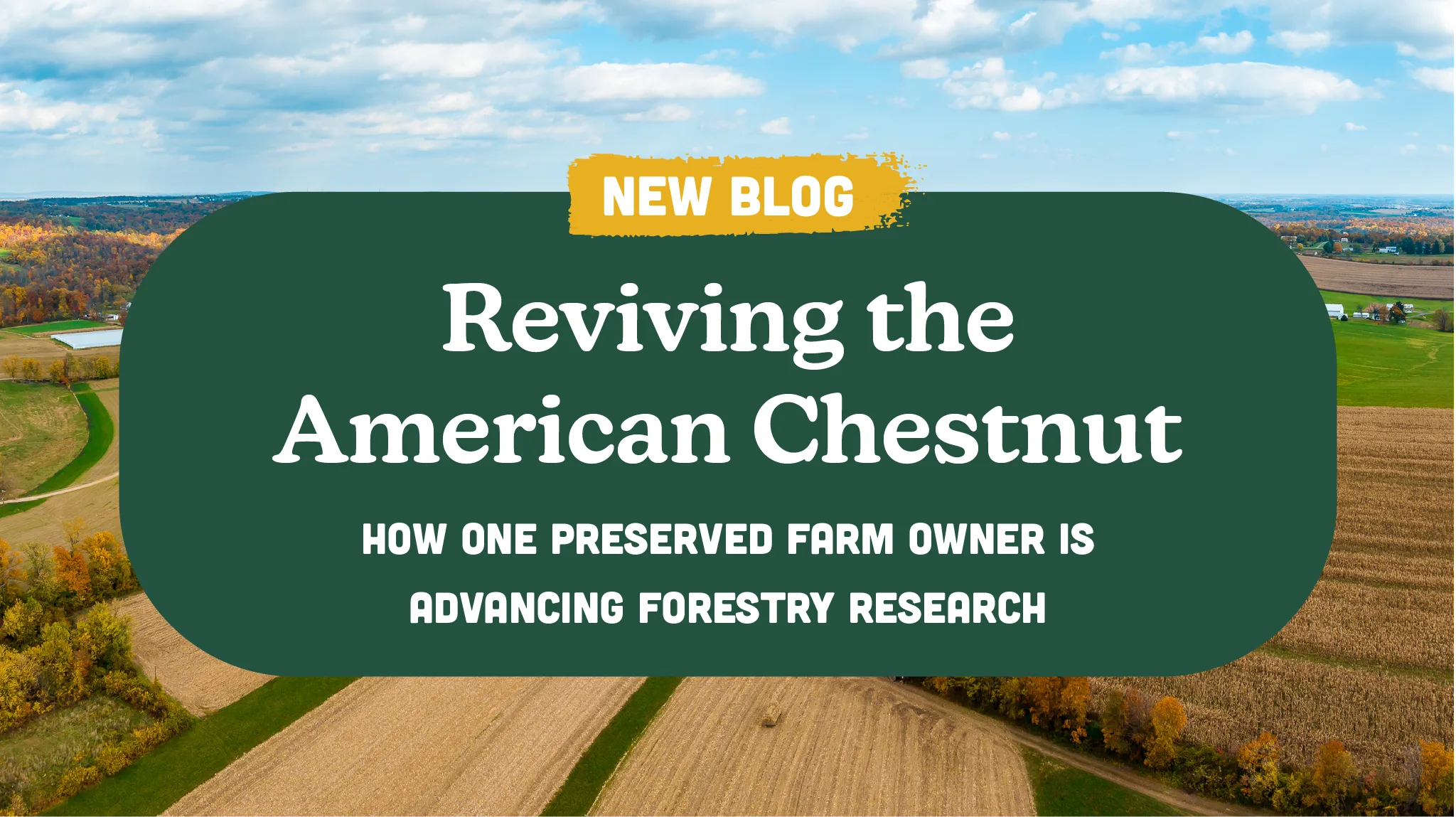Reviving the American Chestnut

A common misconception is that farming is a simple process. In reality, farming is a science that is constantly evolving, and many farmers are dedicated to enhancing the research of their field, pursuing technological advancements in farming methods. John Dougherty, an LFT-preserved farm owner, is one of many farmers involved in this important agricultural research.
Mr. Dougherty is the manager of Gil-lad Farms LLC, a research farm dedicated to the development of blight-resistant American Chestnut tree variations. John and his farm work in partnership with the State University of New York College of Environmental Science and Forestry (ESF), where scientists are using advanced biotechnology to develop disease-resistant trees for farmers.
“Before blight, Pennsylvania was covered in American Chestnut trees,” explains Mr. Dougherty, “but in the 1880s and 1890s, Americans began importing Chinese and Japanese chestnuts, introducing blight and killing millions of American Chestnut trees.”
Blight is a common plant disease typically caused by fungi. This disease causes severe browning and wilting in plants, often causing death. Among tomatoes, potatoes, and apple trees, chestnut trees are some of the most susceptible to blight.
Chestnuts are sought after for their rot-resistant, lightweight properties. Despite its lightness, chestnut trees are strong, making them perfect for construction and craftsmanship. Plus, American Chestnut trees support biodiversity, provide food for wildlife, and more. For decades, scientists at ESF have worked to use biotechnology to develop a blight-resistant American Chestnut variety, in hopes of restoring the species.
To do this, researchers at the University take a gene from wheat plants, called oxalate oxidase, and insert it into the American Chestnut genome. This enzyme helps plants naturally fight disease, including blight. Currently, ESF and its collaborators, like John, are crossing these new trees (called Darlings) with a diverse set of surviving American chestnuts over multiple generations. They hope to create a resilient population suitable for potential large-scale restoration efforts.
As of 2024, ESF has harvested 700 seeds from pollen collected from Darlings’ fields. Researchers at the school are “excited to plant and study these offspring,” as they suspect they will grow into some of the most promising Darlings to date.
Currently awaiting federal sign-offs, the University hopes to provide Darlings to farms off campus soon, establish demonstration farms, and take another step towards successfully restoring the American Chestnut tree.
John is a member of the American Chestnut Restoration organization, a non-profit committed to funding ESF’s program, distributing trees for research, and spreading the word about their mission.
Agriculture and forestry are ever-growing fields, continually evolving to benefit our farms and, in turn, our communities. This research is one of many unique projects happening on our preserved farms. Protecting Lancaster’s farms not only protects productive soil, beautiful views, and fresh food, but also opportunities for research, education, and growth. To learn more about ESF and its research, click here. To learn more about the American Chestnut Restoration organization or become a member, click here.
References:
chrome-extension://efaidnbmnnnibpcajpcglclefindmkaj/https://tacf.org/wp-content/uploads/2016/05/Top10_RackCard.pdf
https://www.esf.edu/chestnut/genes.php
https://www.esf.edu/chestnut/progress-report/index.php
https://www.americanchestnut.org/mission-statement
https://www.britannica.com/science/blight
